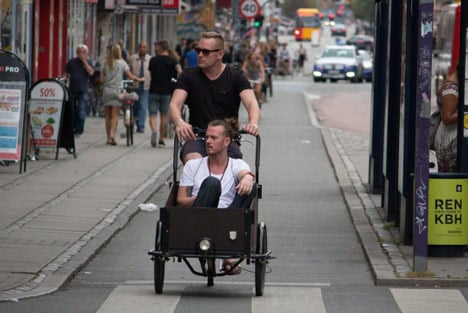Hygge is a very rich community-oriented social concept that can roughly be translated as cosiness and is at the heart of Danish culture. Embracing it, Danes take the negatives of winter and with a highly practical realism convert them into a celebration of companionship, warmth, and comfort. In so-doing they take one of Denmark’s worst attributes and redefine it as part of what defines Danish culture.
This deep sense of Danish realism is the missing element that the outside world has had trouble understanding when trying to unlock the Danish secret to happiness. In contrast to the modern American who has adopted an overly entitled and optimistic version of the American Dream, Danes embrace an approach of managed expectations and a careful blend of realism and optimism.
This means that Danes anticipate the need to invest in and make the most out of situations. So, what are five lessons I’ve learned from the Danes over the last three years?
Lesson 1 – Realistic expectations lead to real happiness
This does not mean not having dreams or that you should be a pessimist. It means accepting that happiness and success have a basic cost and require work. For the Danes this can mean extra years pursuing higher education, or a willingness to pay higher taxes in exchange for a more robust system of services and opportunities.
Lesson 2 – It is easier to be happy when healthy
Small health concerns can lead to big problems. Things like free ambulance rides, doctors appointments, and access to medical attention leave the Danes more productive, healthier, and better prepared to tackle challenges as they arise. Life is challenging enough when you’re fit, healthy, and able to give it your 100 percent. Why make it significantly more difficult when you don’t need to? This builds on the core world view from Lesson 1.
Lesson 3 – Shape your surroundings to inspire happiness
Denmark is famous for its multi-coloured building facades. These are more than ornamental, they bring light and colour to the depths of the dark winter months. Danes invest heavily in re-shaping their environment. This is likely the source of their excellent reputation for design and part of why they are such an innovative people.
Lesson 4 – Work/life balance is essential and shouldn’t make you miserable
Perks and a workplace environment that most Americans would only expect from brands like Google are common place in Denmark, with most workplaces providing communal lunch, flexible hours, and visually creative office environments. Beyond this, the Danish mentality is results-oriented and prioritises a distinct line between personal and private lives. The national minimum is 25 days of vacation with most companies offering 30. Danes are also expected and encouraged to take the majority of this vacation time each year.
Lesson 5 – What you are passionate about defines you, not your job
Asking a Dane outright what they do is on-par with asking an American what their salary is. Whereas Americans typically define themselves by their job, where they live, what they drive, and what they studied, the Danes prioritise passions, hobbies, and activities. In Denmark, “where do you work?” Becomes, “what do you love to do?” It is common to talk about topics that would otherwise be embarrassing or taboo in other cultures, such as a passion for science fiction, your YouTube rock band, or your passion for gardening.
 Alex Berger is an American travel writer, photographer, and digital communications professional currently based in Copenhagen. He authors the popular travel and culture blog VirtualWayfarer while documenting daily life in Denmark on Instagram as @VirtualWayfarer.
Alex Berger is an American travel writer, photographer, and digital communications professional currently based in Copenhagen. He authors the popular travel and culture blog VirtualWayfarer while documenting daily life in Denmark on Instagram as @VirtualWayfarer.

 Please whitelist us to continue reading.
Please whitelist us to continue reading.
Member comments